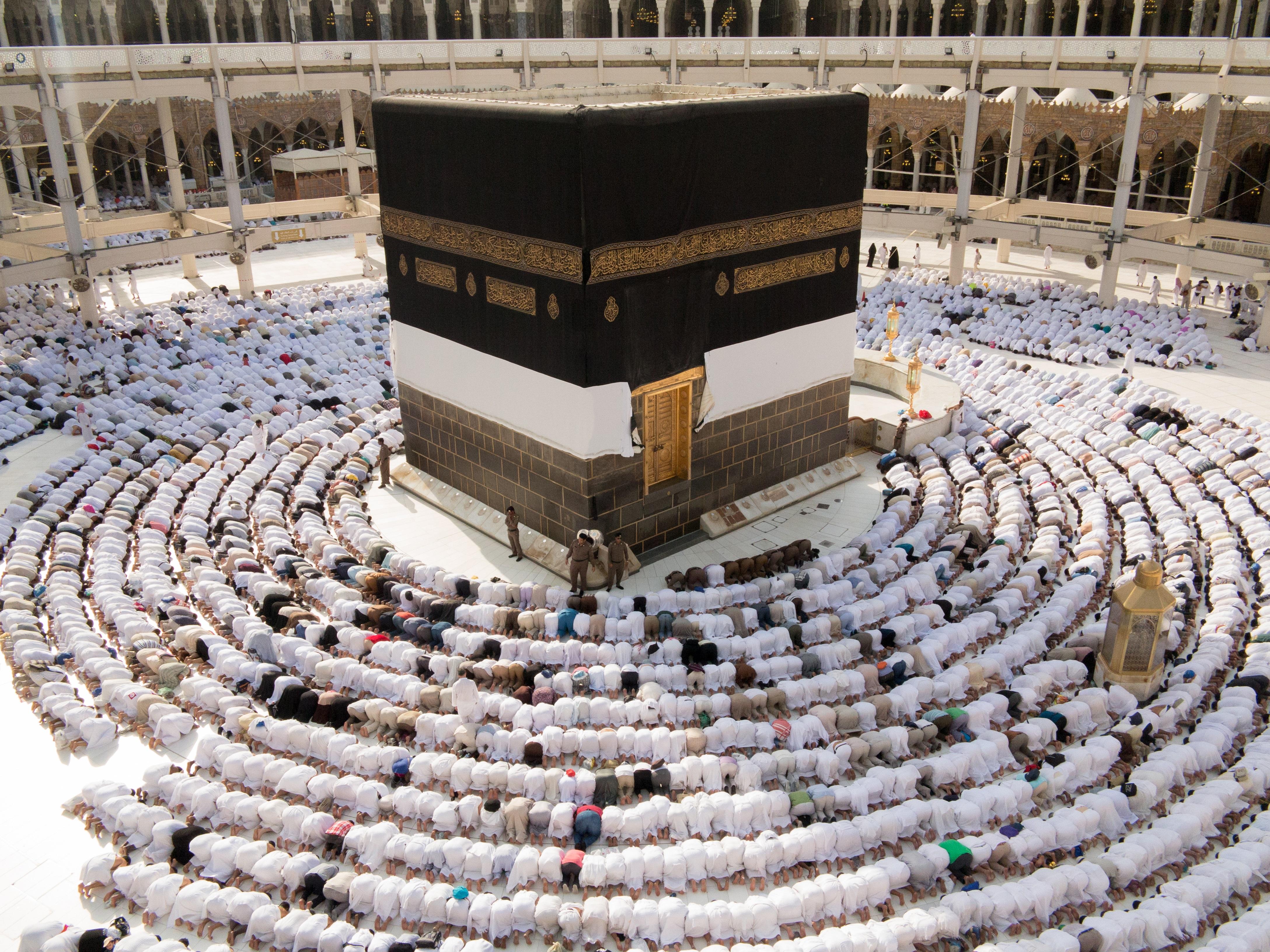
The religion of Islam follows the lunar calendar rather than the Gregorian (solar) calendar. There are still 12 months, but unlike the Gregorian calendar, the dates are not fixed. This means each month moves forward by roughly 10 days each year.
Although there are distinct differences between the two calendars, there are some similarities in the sense that certain months hold more importance than others. In the Gregorian calendar, the 12 month, December, is special due to the Christmas holidays and the ousting of the past year in anticipation of the new one. Similarly, the 12th and final month of the Islamic calendar, known as Dhul Hijjah, is of utmost importance, although for different reasons.
Dhul Hijjah is the final month of the Islamic year. Translated to English, it means ‘the month of pilgrimage’.
Dhul Hijjah is the 12th month of the Islamic (lunar) calendar. There is no specific date as the Islamic calendar relies on the lunar calendar and each month moves every year. This means there is no month that directly correlates with Dhul Hijjah in the Gregorian calendar.
The month of Dhul Hijjah carries much significance for Muslims because it is during this month that the Hajj pilgrimage to Mecca is undertaken, and it is also the month when the Festival of Sacrifice – Qurbani – is observed. This is followed by big Eid, also called Eid al-Adha. These are among the holiest dates for Muslims, making Dhul Hijjah the most significant time of the year.
Allah (SWT) swore an oath that cemented the first 10 days of Dhul Hijjah as the most rewarding of all. These are the best days of the year.
“There are no days on which righteous deeds are more beloved to Allah than these ten days.” (Bukhari).
There are a number of notable dates during this period, including the Day of Arafah which is the most prominent day of all, for it was on this day that Allah (SWT) finalised Islam. This falls on the 9th day.
The first 10 days are also when Muslims undertaking the Hajj pilgrimage must do so. Hajj begins on the 8th day and concludes on the 10th day. Every Muslim should seek to complete Hajj at least once in their life – health and finances permitting – and it is to be completed at this time of the year only. This means millions of Muslims make their way to Mecca for this three-day period every year.
Following the completion of Hajj on the morning of the 10th day, Qurbani is performed immediately after, and Eid al-Adha is celebrated in sequence. Qurbani and Eid take place from the 10th day to the 13th day, giving Muslims a three-day window to perform their sacrifice in the name of Allah (SWT) and in honour of Prophet Ibrahim (AS).
Qurbani is an incredibly auspicious event during which Muslims seek to demonstrate the same obedience to Allah (SWT) that Prophet Ibrahim (AS) did when he was prepared to sacrifice his son, Ismail (AS). It is not always possible for Muslims to make their own sacrifice due to the laws of the land, so those not on Hajj may make a Qurbani donation to a charity such as UKIM, and we will ensure a sacrifice is made in their name and the meat is given to the neediest.
As per the Prophet Muhammad’s (PBUH) discretion regarding two designated times of celebration, Muslims also have three days to celebrate Eid and revel in all the goodness Allah (SWT) has given them. As soon as a Qurbani donation has been made, Muslims may begin celebrating Qurbani Eid.
There are a number of traditions and customs that Muslims observe during Dhul Hijjah in addition to the prominent days listed above. Due to the day of Arafah falling during this month, there is no better time for Muslims to recite the Qur’an and make their bond with Allah (SWT) stronger, therefore it is customary for all Muslims to read the holy text during Dhul Hijjah.
It is customary for Muslims to say Takbeer for the first 10 days of Dhul Hijjah. Men say Takbeer loudly whilst women say it quietly. The following statement is Takbeer:
“Allah is the greatest, Allah is the greatest, there is no God but Allah, and Allah is the greatest Allah is the greatest, and all praise is for Allah.”
Takbeer shows your devotion, obedience and belief to Allah (SWT) in this most auspicious time of the year.
‘Can I cut my nails during Dhul Hijjah?’ is one of the most frequent questions Muslims and reverts ask. Muslims who are eligible to give Qurbani (those who pay Zakat are typically those eligible to give Qurbani), should not cut their nails or hair until Qurbani is over.
Allah (SWT) designated the first 10 days of Dhul Hijjah as the most prominent of the year, and this means any charitable acts and good deeds you complete during this time will incur greater rewards than at any other time of the year.
Muslims are encouraged to give Sadaqah during this time, although Qurbani will be the biggest donation you are likely to give during Dhul Hijjah. Whilst Qurbani is a religious due to all those eligible and is a show of obedience to Allah (SWT), at its core, it helps those most in need.
When you donate your Qurbani with UKIM, we will carry out the sacrifice on your behalf, ensuring you receive all the rewards associated with giving. The shares of meat will be distributed to those most in need, ensuring even the neediest can enjoy the glory of Eid al-Adha with full tummies.
Make a donation to UKIM and reap the rewards of this holy month.
Copyright © 2025 UKIM All Rights Reserved.
UK Registered Charity Since 1962
Charity Registration No. 250275


